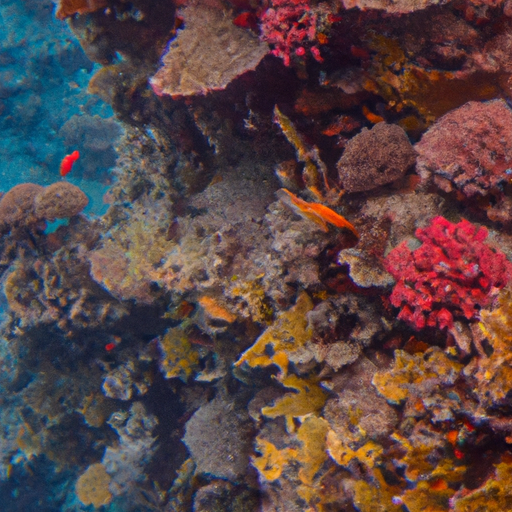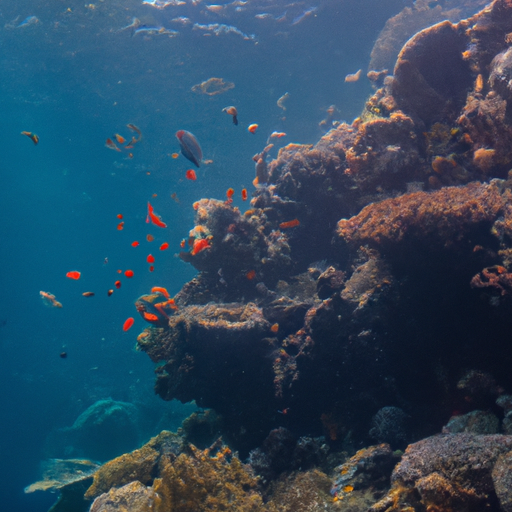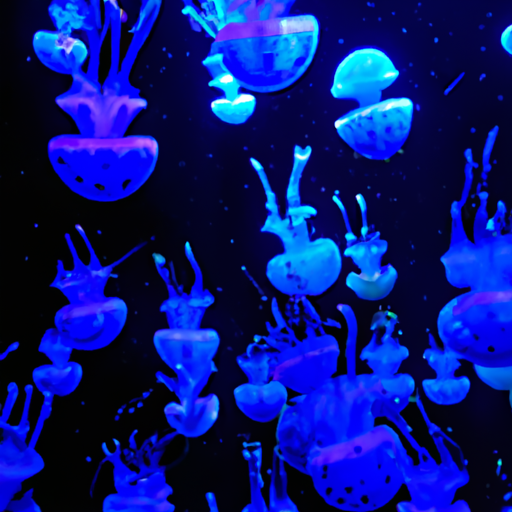The ocean is a vast and mysterious realm filled with an astonishing array of marine life. Exploring the fascinating diversity of creatures that inhabit these underwater ecosystems is a captivating adventure that never fails to amaze and enlighten. From the tiniest microscopic organisms to the gigantic whales, the ocean is a treasure trove of unique and extraordinary species. One of the most remarkable aspects of marine life is its incredible diversity, with millions of different species each with its own distinct characteristics and adaptations. The immense biodiversity extends not only to vertebrates but also to invertebrates and plant life, with coral reefs and seagrass meadows being examples of rich ecosystems supporting a wide range of species. Unveiling this marvelous diversity requires scientific research, exploration, and conservation efforts, as we gain a deeper appreciation for the interconnectedness of all living beings and the importance of preserving our precious oceans for generations to come.
Coral reef inhabitants
Coral reef inhabitants category includes a diverse array of marine organisms that are found within the ecosystem of coral reefs. These inhabitants encompass a wide range of species, including fish, crustaceans, mollusks, sponges, corals, and many others. Coral reefs provide a habitat that supports a complex web of life, with each organism playing a vital role in maintaining the overall health and balance of the reef ecosystem. From vibrant and colorful fish that rely on corals for shelter and food, to tiny invertebrates that help in coral reef construction and nutrient cycling, the coral reef inhabitants category highlights the incredible biodiversity and interdependence within these fragile and important ecosystems.
Reef inhabitants, such as clownfish, parrotfish, angelfish, and butterflyfish, are popular examples of coral reef fish species. They have adapted to their surroundings in various ways, such as living within the protective branches of corals or forming symbiotic relationships with anemones. Crustaceans like crabs and shrimps find refuge among the reef’s crevices and corals, while mollusks such as sea snails, nudibranchs, and octopuses are often observed gliding along the reef or hidden within the colorful corals. Additionally, various types of sponges and corals themselves serve as the backbone of the reef ecosystem, providing foundational structures and filtering nutrients. Understanding and appreciating the vast variety of coral reef inhabitants is crucial in protecting and conserving these unique and delicate ecosystems.
The Importance of Conservation: Protecting Marine Life for Future Generations
is its role in maintaining the overall health of the oceans. Marine organisms, such as coral reefs and phytoplankton, form the foundation of marine ecosystems and provide essential services like oxygen production, carbon sequestration, and food sources for other species. By conserving marine life, we can help protect these valuable ecosystems and maintain a stable climate.
Another crucial aspect of marine conservation is its impact on the economy and social well-being of coastal communities. Fishing and tourism industries rely heavily on healthy marine ecosystems, and their decline can have devastating effects on livelihoods and cultural heritage. Preserving marine life is not only about environmental responsibility but also about ensuring sustainable development for communities worldwide.
To address these threats, conservation efforts should focus on implementing sustainable practices, reducing pollution, establishing protected areas, and raising awareness about the need for responsible use of marine resources. Governments, international organizations, and individuals all play a role in preserving marine life for future generations.
In conclusion, the urgency of marine conservation cannot be overstated. By protecting marine life, we not only preserve the incredible biodiversity and beauty of our oceans but also ensure the well-being of our planet and future generations. It is our responsibility to take immediate action and make sustainable choices to secure a thriving marine environment for all.
Unveiling the Secrets of the Deep: Discovering Rare and Elusive Marine Species
The article “The Mysterious World Beneath: Exploring the Depths of the Ocean to Uncover Rare and Elusive Marine Species” discusses the allure and challenges of exploring the depths of the ocean. Despite the inhospitable conditions, scientists are venturing into this unknown world to discover rare and elusive marine species. Advancements in technology, such as ROVs and manned submersibles, have allowed researchers to reach new depths and observe these creatures in their natural habitat. The groundbreaking discovery of a live giant squid in 2012 is just one example of the incredible findings that have shed light on the diversity and adaptations of deep-sea species. Studying these hidden creatures not only satisfies curiosity but also has important implications for conservation and a deeper understanding of marine ecosystems. As exploration continues, more exciting discoveries are anticipated, uncovering the wonders that lie beneath the surface.



